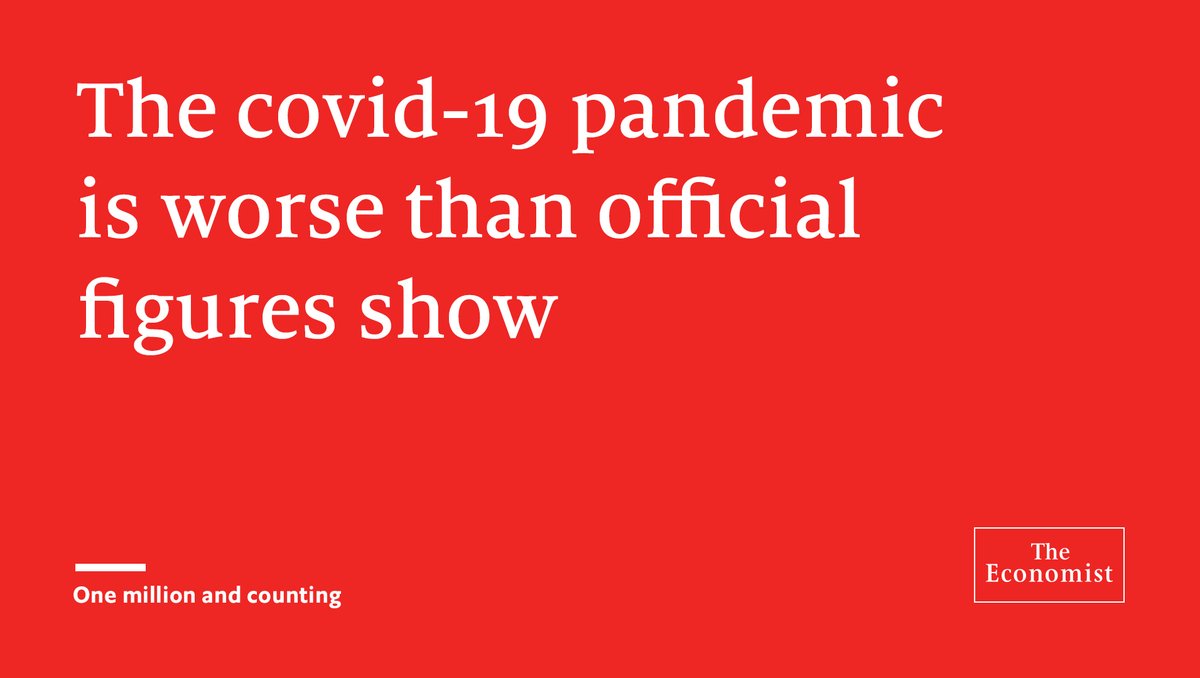Covid-19 has now killed one million people around the world. How has the pandemic progressed—and where is it headed? Thread 👇 (1/13) econ.trib.al/KMbIfI2 

The number of people known to have been infected with covid-19 now stands at more than 33m. But the true tally of cases and deaths is likely to be higher (2/13) econ.trib.al/2KKABCF 

A better, if still imperfect, sense of the scale of infections can be gleaned from “serosurveys”, which look for antibodies against SARS-CoV-2 in blood samples (3/13) econ.trib.al/KMbIfI2
Data gleaned from 279 such surveys administered in 19 countries suggest that somewhere between 500m and 730m people have been infected with covid-19 to date (4/13) econ.trib.al/KMbIfI2 

The official toll from the coronavirus among countries including America, Brazil and parts of western Europe, is 580,000. But the way that countries count fatalities caused by the pandemic mean the true toll may be even higher. How do we know? (5/13) econ.trib.al/3oINXz5
The “excess mortality” method takes the number of people who die from any cause in a given region and period, and then compares it with the recent historical average (6/13) econ.trib.al/t1MY72r
In the 16 countries in our dataset, there were 900,000 “excess” deaths as a direct or indirect result of covid-19 between March and August this year (7/13) econ.trib.al/KMbIfI2 

Add to this countries where record keeping is not good enough to allow such assessments, and the true death toll for the pandemic may be as high as 2m (8/13) econ.trib.al/bZkOwHL
Cases are currently rising fastest in western Europe. But the rising number of cases has not translated into nearly as many deaths this time. How can this be explained? (9/13) econ.trib.al/KMbIfI2
During the first wave little testing was being done, and so many infections were being missed. Now lots of testing is being done, and vastly more infections are being picked up (10/13) econ.trib.al/3oINXz5 

The coming winter is nevertheless worrying. But as the fear of covid-19 cases increase, so does the hope that they will be less severe than the spring (11/13) econ.trib.al/np3QxII
Promising vaccines could seek regulatory review of preliminary testing results soon. But the level of immunity that such vaccines will provide, and for how long, still remains to be seen (12/13) econ.trib.al/fZyhg96 

What else has the world learned about the covid-19 pandemic? Check out the rest of our article to find out (13/13) econ.trib.al/KMbIfI2
• • •
Missing some Tweet in this thread? You can try to
force a refresh











